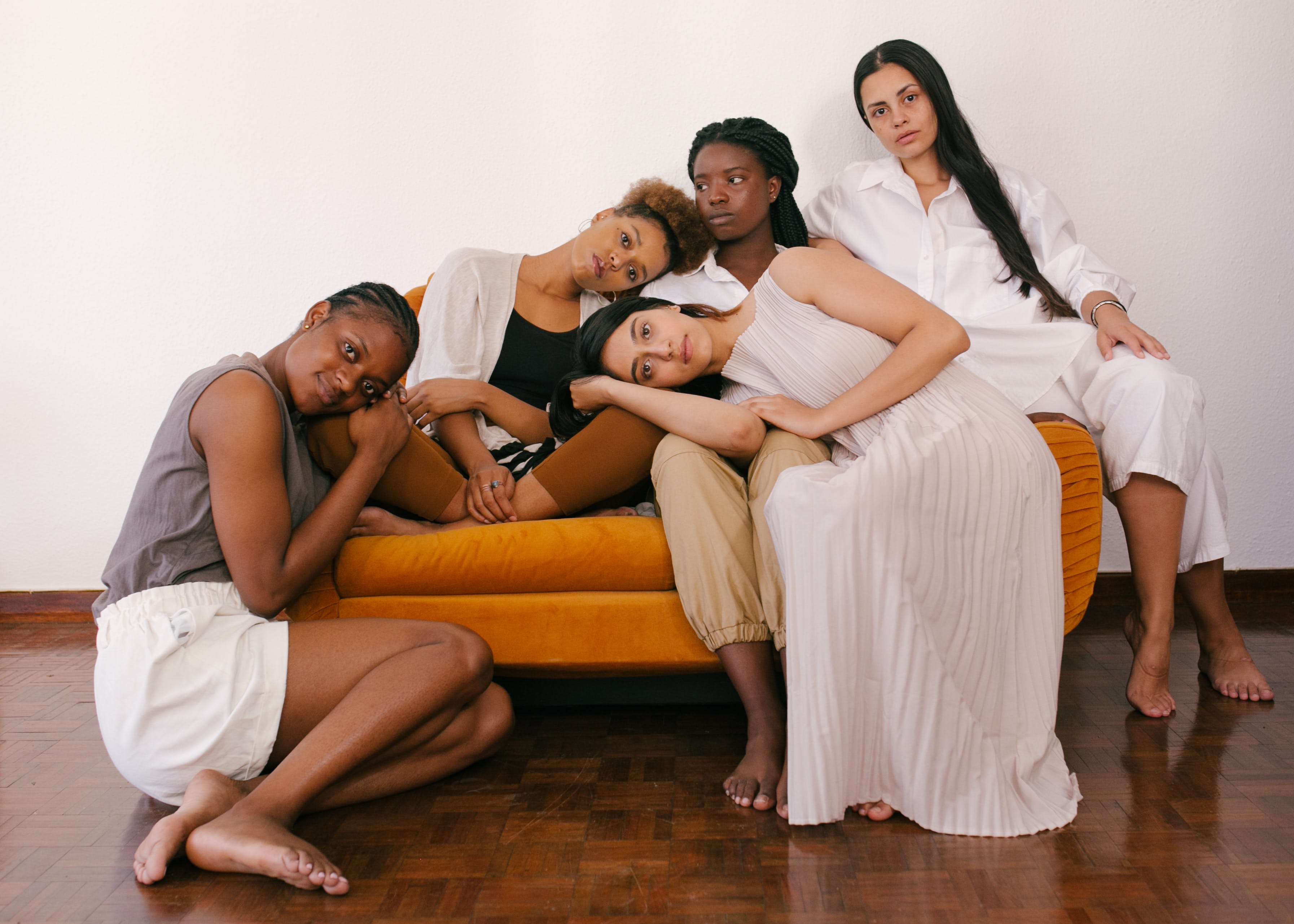It can be hard to feel confident in your mixed or biracial identity, especially as a woman. If you’re a mixed woman, odds are you’ve dealt with gender and racial biases that have made you question your biracial identity or how you should lead your life.
Maybe you resonate with some or all of these situations:
- Your peers dismiss you.
- You’re treated like you aren’t as capable as your coworkers or other leaders.
- Your friends treat you differently than their other friends.
- Your parents encourage you to embrace certain sides of yourself more than others.
I was once told that I couldn’t respond to a certain situation because I wasn’t “black enough”. It was in high school, a time when you’re still figuring out who you are and what you’re supposed to be. These types of experiences have stuck with me. They motivated me to become a transformational coach for mixed women.
You’re in charge of your future, despite what you’ve endured in the past.
It took me a while to realize this for myself. I’ve had to figure out who I am while everyone around me was telling me or showing me that I wasn’t enough of this or I was too much of that.
So, if you haven’t embraced your mixed or biracial identity, I’m here to help you discover who you are and what you want out of life.
You are enough.
What is Biracial Identity Development and How Does It Apply to You?
Biracial identity development looks at the effects of various internal and external factors on one’s identity. These include social, cultural, and environmental elements.
Having a strong biracial identity is important for several reasons. It:
- Affects your happiness and well-being.
- Impacts your success and professional development.
- Can affect your children’s mixed or biracial identity development.
You should feel as confident in yourself and your identity when you walk out of the door as you do behind closed doors.
Who you are at home and who you are in the outside world should be the same person. If you’re not in tune with who you are and want to be, you could spend your whole life unfulfilled and conflicted.
This is the case for many mixed individuals. And for mixed women, the struggle is two-fold. We face biases related to race and gender.
So, what causes these mixed and biracial identity crises? And how can you, as a mixed woman, feel safe and confident to be yourself in your personal and professional life?
First, let’s look at how different factors contribute to your mixed or biracial identity issues.
What Influences Your Mixed or Biracial Identity?
- Family and home life.
Parents and other family can, either intentionally or inadvertently, encourage identification with one race over another ¹.
A study of biracial college students found that most of the students’ expressed white identities came from family, while their expressed black identities grew as they spent time away from home².
The pressure from relatives to identify more with one race can cause confusion and a lack of pride in your biracial identity. This confusion can worsen when you’re trying to fit in with peers.
- Peers and social life.
Another study involved biracial and bi-ethnic adults between the ages of eighteen to twenty-eight³. Most participants expressed a strong desire to fit in, but they often felt like outcasts. Some of them even wished they weren’t biracial.
This internal crisis, influenced by external factors, can lead to lasting insecurities. These insecurities can affect the way you interact with others, pursue personal and professional goals, and how you treat yourself.
- Workplace experiences.
As a woman, your view of your mixed or biracial identity has likely been challenged in the workplace. There are internal and external barriers that can prevent mixed women from advancing as easily and as often as their white male counterparts.
People might frown on certain traits when they’re demonstrated by a mixed woman, but not when a woman of a different race or a male employee exhibits these traits.
There’s a pressure to present yourself in a certain way. Mixed women, in general, deal with conflicting expectations to embody both typical masculine traits, such as self-promotion, and stereotypical feminine traits, such as being nurturing. This is known as “double bind”. Several studies have found that double bind is a unique barrier that women in higher education face that prevents them from advancing⁴. These expectations make it difficult for women to embrace their mixed or biracial identity.
This is one of the greatest challenges that mixed women face in their personal and professional interactions. They’re often dismissed or punished for being themselves, which can contribute to a lot of shame and fear. They may choose to distance themselves from their mixed or biracial identity to survive. In the process, they may find out that there are blockages that can prevent them from thriving.
How can you live in alignment with your true self when you’re expected to be and act like someone you’re not?
How to Start Embracing Your Mixed or Biracial Identity and Pursue Your Goals with Confidence
It’s not easy to honor your mixed or biracial identity when you’re constantly facing internal and external pressures. However, if you want to feel fulfilled and contribute to real change, it’s the only way.
So, where do you start?
- Look beyond your reflection.
Everything begins with awareness. Seeing who you are on the outside can be powerful. However, greater possibilities are present when you look inward. You can’t make changes on the outside if you don’t first change the way you think and feel on the inside.
Look in the mirror and talk to yourself. Give yourself grace and truth, and be kind. When you take claim of who you are, and believe in who you can become, your life will start to shift in powerful ways.
- Remind yourself daily.
Before you do anything else, remind yourself of who you are. Recognize the value you bring to your personal and professional relationships. If you can’t think of anything, reflect on the last time you helped someone and how you made that happen. Then consider what was present within you that made that possible.
If you treat yourself like a garden that requires love and understanding to grow, your intentions and outcomes will change for the better.
- Work through your feelings.
Your experiences are real and your feelings are your own.
You can’t control how others think about you and treat you. You can control how you view and treat yourself.
Your mixed or biracial identity might be shaky because of what you’ve faced, but you can learn to stand strong in who you are. Sometimes all you need is some help – we all need a little guidance, clarity, and support at times.
- Work with a Professional.
It can be difficult to recognize and combat your limiting beliefs on your own. Work with someone who can equip you with the knowledge and tools you need to make productive changes.
Your mixed or biracial identity should be a source of pride and certainty, not shame and confusion.
Dear Mixed Girl, I See You and I Understand You
I’m a well-educated mixed woman who’s proud of her biracial identity. However, I didn’t always walk with pride in who I am.
I wanted others to accept me, but I didn’t accept myself (at least, not in full). Once I realized this, I worked on improving my view of myself so I could stand up for what I want and need.
I still have moments where I’m shaken or taken aback by my experiences and those of my clients. I’ve been asked far too many times why my hair looks like it does. I’ve been questioned about why I speak Spanish and who taught me to do so. Others have treated me like I’m not enough.
Even so, I’m proud to be a Black and Latina woman. Nothing can stop me from living inside of my passion and through my purpose.
If you’re a woman who’s struggling to embrace her mixed or biracial identity, visit my website to book a call. Let’s work together to discover your purpose and nurture your relationship with your authentic self.
Dr. KayLa N. Allen is an International Motivational Speaker, Thought Leader, Women’s Transformational Coach (Diversity and Identity Coaching) – Certified Health and Well-Being Coach (for Women), a Healthcare Leadership Development Consultant, a DEI (Diversity, Equity, and Inclusion) Leader and Coach via Dear Mixed Girl, and an Expert on Shaping Thriving Futures. Learn more about her services and how you can begin your journey through business and personal evolution/personal development by clicking the button below.

